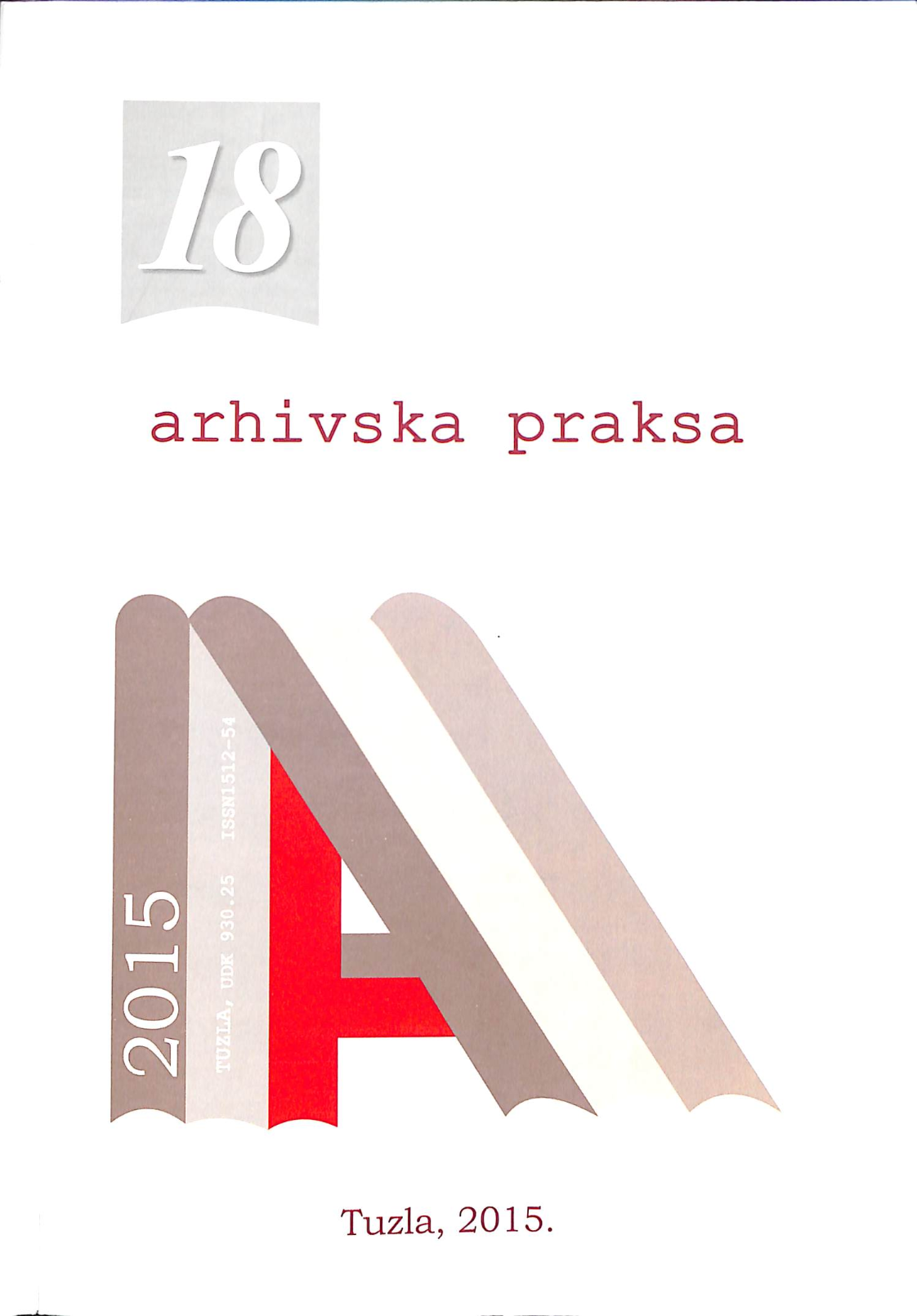Dostupnost arhivske građe - jedan od najvećih problema modernih arhiva
Access to archives - a major problem for modern archives
Author(s): Aida Škoro Babić, Jelka MelikSubject(s): Archiving
Published by: Arhiv Tuzlanskog kantona
Keywords: Archives; access to archival records; archival legislation;archival laws;
Summary/Abstract: Archives must be accessible to all users on the same principles and allow victims of crimes under international law, access to archives and records of all though the archives closed to the (general) public. Each user, to which the access to archival records was refused, must have the right to a written explanation specifying the measures and legal remedies against the refusal of access. It is the principle that the use of archives to researchers free of charge and within the limits, which do not restrict research. Archivists must have access to all parts of the closed timber, be aware of the causes and ways of unavailability and not be constrained in working with professional material. Archivists must collaborate in decision-making on access to archival records. In Slovenia we have many problems concerning the access to archival records. Especially many problems occur concerning documents of the The Departement of National Security and later State Security Administration, documents of the Ministry of Internal Affairs and its predecessors, and the documents of the prosecution and courts, and the vast majority of content that is created during the Second World War. Anonymization, which is provided by the changes to the Law on the Protection of the documentary (registry) and archival materials and archives with the insufficient number of archivists literally blocked the work of the state archives. From the above-described methods of access in some European countries, we see that access to the records is only partly similar, while the part is very different. Unfortunately we could not get to the data, what kind of difficulties they encounter in the archives of the two countries, which we took as an example.That data would help us a lot to precisely direct the formation of an adequate archival legislation. We must not forget the fifteen years old Recommendation of the Council of Europe in terms of access to archives and the decade-old recommendation of the Council of the European Union on the priority sectors for cooperation in the field of archives in Europe. In the second are among the most necessary duties in Europe, in addition to protection and prevention of damage to archival material, classified and encouraging best practices with respect to national and European law on the management of and access to documentary and archive materials. Unfortunately, the major impact of these two recommendations had but we must insist that they do not remain only two dead document, but to grow into as binding regulations. In front of us there is an important and necessary step of forming an international working group, preferably within the framework of the EU, which would be dealing with archival standards as regulators of the use of archival records and producing several proposals in favor of resolving this serious and complex issue. It should be emphasized that the archival law as part of administrative law would be able to get more honorable status only when they adopted some general standards, which will be mandatory for all archives, at least European. In this field, we have to come up with something similar, such as already exists in the fields of criminal, procedural and substantive law. The criminal laws of each country differ in many details, such as, for example, criminal penalties, but the basic principles are as a result of a long development of jurisprudence still common.
Journal: Arhivska praksa
- Issue Year: 2015
- Issue No: 18
- Page Range: 288-301
- Page Count: 14
- Language: Bosnian, Croatian, Serbian

